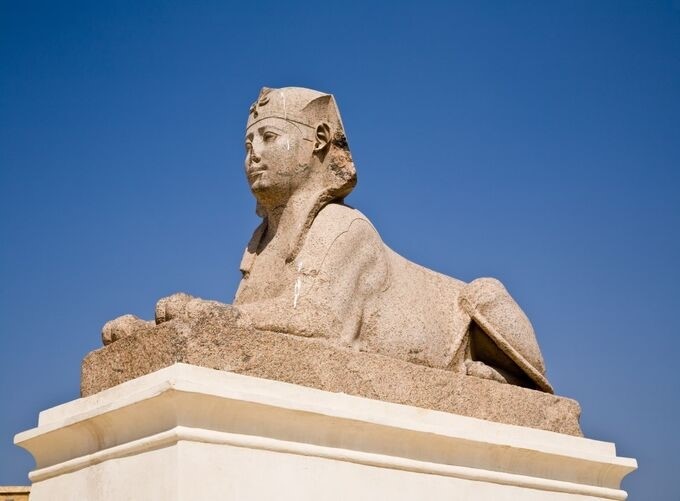
What Tourists Should Know About Egypt
Egypt, with its rich history, ancient monuments, and vibrant culture, is a fascinating destination for travelers. However, to ensure a pleasant and trouble-free visit, it's crucial to be aware of the local rules and regulations that apply to tourists. This guide provides an in-depth look at the essential rules for tourists in Egypt, covering everything from visa requirements to cultural etiquette and safety tips.
Introduction Egypt
Traveling to Egypt can be an exhilarating experience, but understanding and respecting local rules and customs is vital for a successful trip. This comprehensive guide will help you navigate the various aspects of tourism in Egypt, including visa regulations, cultural norms, safety considerations, and practical travel tips.
Visa and Entry Requirements for Egypt
1.1 Visa Types
Tourist Visa:
- Purpose: For tourism and leisure purposes.
- Validity: Typically valid for 30 days.
Business Visa:
- Purpose: For business-related activities.
- Validity: May vary depending on the nature of the business.
Student Visa:
- Purpose: For educational purposes.
- Validity: Based on the duration of the study program.
Transit Visa:
- Purpose: For passing through Egypt en route to another destination.
- Validity: Usually valid for a short period.
1.2 Applying for a Visa
Online Application:
- e-Visa: Apply for an e-Visa through the official Egyptian government website for convenience.
Visa on Arrival:
- Availability: Available for certain nationalities at major Egyptian airports.
Documents Required:
- Passport: Valid for at least six months beyond the date of entry.
- Passport Photos: Recent passport-sized photos.
- Proof of Funds: Evidence of sufficient funds for your stay.
- Travel Itinerary: Proof of travel arrangements.
Fees:
- Cost: Varies depending on the type of visa and nationality.
1.3 Entry Regulations
Customs Regulations:
- Allowed Items: Personal items, clothing, and gifts.
- Prohibited Items: Drugs, items that may offend religious or cultural sensibilities, and items subject to import restrictions.
Security Checks:
- Procedures: Expect thorough security checks at airports and major transport hubs.
Health Requirements:
- Vaccinations: Check if any vaccinations are required or recommended before travel.
Cultural Etiquette and Dress Code
2.1 Respecting Local Customs
Dress Code:
- Modesty: Dress modestly, especially when visiting religious sites. Women should cover their shoulders and knees.
- Swimwear: Appropriate swimwear is acceptable at beaches and pools but should not be worn in public places.
Behavior:
- Public Displays of Affection: Avoid public displays of affection, such as kissing and hugging.
- Respect for Religion: Show respect for Islamic practices and traditions. During Ramadan, be mindful of eating and drinking in public.
Photography:
- Permits: Obtain permission before photographing people, especially in rural areas.
- Restricted Areas: Avoid photographing military and government buildings.
2.2 Social Norms
Greetings:
- Forms of Address: Use formal titles and greetings when addressing people.
- Handshakes: Handshakes are common, but avoid touching women’s hands unless they initiate it.
Tipping:
- Practice: Tipping is customary and appreciated in restaurants, hotels, and for service providers.
Hospitality:
- Acceptance: If offered food or drink, it is polite to accept, even if just a small amount.
Health and Safety
3.1 Health Precautions
Vaccinations and Health Checks:
- Routine Vaccinations: Ensure you are up-to-date with routine vaccinations.
- Health Advisories: Check if any specific vaccinations or health precautions are recommended.
Local Health Services:
- Hospitals and Clinics: Major cities have well-equipped hospitals and clinics. Check if your travel insurance covers medical costs.
Food and Water Safety:
- Food: Eat freshly prepared food and drink bottled or boiled water to avoid stomach issues.
3.2 Safety Tips
General Safety:
- Personal Belongings: Keep your belongings secure and be cautious in crowded areas.
- Emergency Contacts: Familiarize yourself with local emergency numbers.
Local Laws:
- Drug Laws: Strict drug laws are enforced. Avoid carrying or using illegal substances.
- Legal Matters: Be aware of and respect local laws and regulations.
Travel Advisories:
- Check Updates: Review travel advisories from your government before traveling.

Transportation Rules and Tips
4.1 Public Transportation
Taxis:
- Official Taxis: Use registered taxis with meters. Negotiate the fare if there’s no meter.
Buses and Trains:
- Local Buses: Affordable but may be crowded.
- Trains: Efficient for traveling between cities. Book in advance for long journeys.
Ride-Sharing:
- Services: Ride-sharing apps like Uber and Careem operate in major cities.
4.2 Driving in Egypt
Driving License:
- International License: Carry an International Driving Permit (IDP) if planning to drive.
Traffic Rules:
- Road Conditions: Traffic can be heavy, and driving habits may differ from what you are used to.
- Speed Limits: Observe speed limits and traffic signs.
Parking:
- Availability: Parking can be challenging in busy areas. Use designated parking spots.
4.3 Domestic Flights
Airlines:
- Major Airlines: EgyptAir and other local carriers operate domestic flights.
Airport Security:
- Procedures: Expect standard security checks at airports.
Money and Shopping in Egypt
5.1 Currency
Egyptian Pound (EGP):
- Currency: The official currency of Egypt.
Exchange Rates:
- Rates: Check current exchange rates and use authorized currency exchange services.
ATMs and Credit Cards:
- Availability: ATMs are widely available, and credit cards are accepted in most establishments.
5.2 Shopping Etiquette
Markets and Souks:
- Bargaining: Haggling is common in markets and souks. Be prepared to negotiate prices.
Shopping Malls:
- Modern Malls: Major cities have modern shopping malls with fixed prices.
Souvenirs:
- Local Products: Popular souvenirs include papyrus art, perfumes, and traditional crafts.
Environmental and Cultural Conservation
6.1 Protecting the Environment
Waste Management:
- Recycling: Dispose of waste properly and use recycling bins where available.
- Plastic Bags: Minimize the use of plastic bags and single-use plastics.
Respecting Wildlife:
- Wildlife: Avoid disturbing or feeding wildlife, and follow guidelines for eco-friendly tourism.
6.2 Cultural Preservation
Respecting Heritage Sites:
- Rules: Follow guidelines at archaeological sites and museums. Avoid touching or climbing on ancient artifacts.
Local Communities:
- Engagement: Engage respectfully with local communities and support responsible tourism practices.
Communication and Language
7.1 Language
Arabic:
- Official Language: Arabic is the official language of Egypt. English is widely spoken in tourist areas.
Useful Phrases:
- Hello: مرحبا (Marhaban)
- Thank You: شكرا (Shukran)
- Please: من فضلك (Min fadlak)
7.2 Internet and SIM Cards
SIM Cards:
- Purchase: Available at airports and local shops. Opt for a local SIM card for better rates on data and calls.
Wi-Fi:
- Availability: Many hotels, cafes, and public spaces offer free Wi-Fi.
Plan Your Dream Holiday in Egypt Now
Understanding and respecting the rules for tourists in Egypt is essential for a smooth and enjoyable visit. From visa regulations and cultural etiquette to health precautions and safety tips, being well-informed will help you navigate your Egyptian travel package with ease. Embrace the rich history, stunning landscapes, and vibrant culture of Egypt, and follow these guidelines to ensure a memorable and respectful experience.



